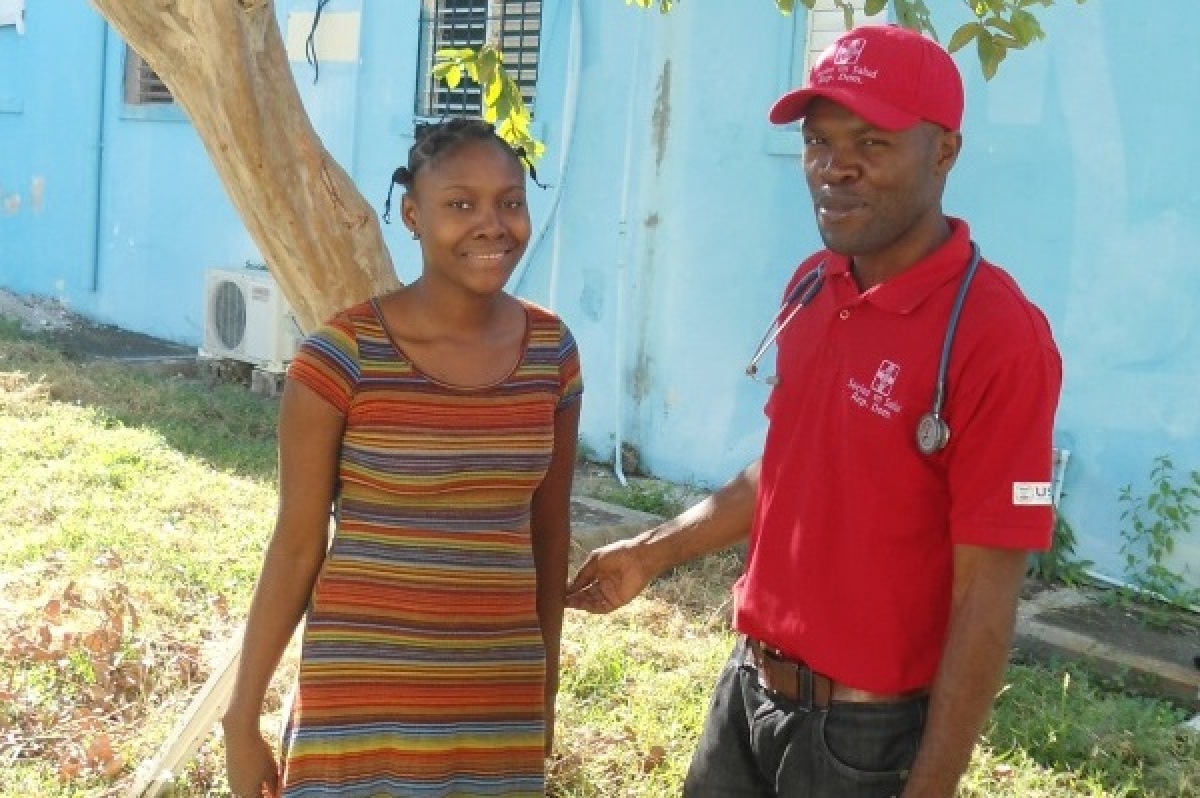Improving HIV Care for Vulnerable Haitian Migrants
Posted on Nov 29, 2013

Partners In Health supports three public health facilities in the Dominican Republic, just across the border from Haiti in the province of Elias Piña. With funding and support from the U.S. Agency for International Development, PIH and our Dominican sister organization, Socios En Salud, work to prevent HIV and improve the quality of HIV care for vulnerable migrant populations, many of whom are Haitian.
Dr. Alexandre Widner, the project’s director since March 2013, is familiar with the dynamics of border towns. The Haitian doctor grew up in Anse-a-Pitre, another town on the porous border between the Dominican Republic and Haiti. He answered our questions for World AIDS Day.
Where did you study medicine, and how did you become the director of Socios En Salud?
I studied medicine for seven years in Cuba. It was an incredible experience, to be part of the Cuban medical system. They have a great system that is based in community health, and so the population is very involved in their health. It’s a well-developed system.
In the past, I worked on the border in Anse-a-Pitre, in the south of Haiti, with an organization called Batey Relief Alliance. We supported a clinic, operated a food program, and educated people about HIV/AIDS. It was through that position that I learned about Zanmi Lasante’s work in the Central Plateau.
The people served by Socios En Salud face difficult barriers to health. Could you explain some of their challenges?
Our patients are people who have a lot of problems with poverty and health. They’re facing HIV, as well as social, psychological, and cultural barriers to care. We work to break the cycle of poverty and disease so that people can continue living with hope.
About 45 percent of our patients are Haitian migrants, many of whom live in the DR without documents. They have four strikes against them. First, they are migrants who don’t speak the language or know the culture of the DR. Second, they don’t have legal immigration documentation. Third, they are living with HIV. Finally, they’re Haitian, and face discrimination and racism. Most of the Haitians are in the DR to look for work and better economic opportunities, but sometimes they end up in commercial sex work because of their economic difficulties.
The team here at Socios En Salud is a mix of Haitians and Dominicans, and we’re working together to improve the situation for them. One of our biggest challenges is to establish a binational referral system that allows our patients to continue receiving care no matter what part of the island they’re in. People who cross the border are living in an unusual situation, and we’re here to attend to their needs and improve their lives.
What services does SES provide to these patients?
For four years, we have worked to prevent HIV and strengthen care for HIV patients on the Dominican border. There are many aspects to this. We work closely with Dominican Ministry of Health staff at public hospitals in Elias Piña to prevent HIV and provide treatment to people living with HIV. We also do a lot of community counseling and testing of HIV, to help people understand their status and enroll in care if they are HIV positive.
Something that has impressed me a lot is the love and care the staff gives to people with HIV.
In the hospitals, we prevent the transmission of HIV from mother to child by training doctors and nurses to conduct HIV testing on all pregnant women and enroll the women who test positive on antiretroviral therapy, which wasn’t always happening before. To improve HIV care at the hospitals, we acquired a mobile testing device that allows us to determine the immune system health of HIV patients, which helps us determine when they need to start antiretroviral therapy. Before that, the hospitals had to send blood samples all the way to Santo Domingo to be tested.
We also provide food support to patients with HIV and tuberculosis, and we connect them with community health workers who ensure they are taking their medicines every day. However, our 32 community health workers, called acompañantes, do much more than that. They are confidantes to these patients and work with them on many social or psychological problems they have, such as stigma or discrimination, and refer them to the social worker at SES and help link them to psychosocial support services. We also work with Zanmi Lasante, Partners In Health in Haiti, to support the hospital on the Haitian side of the border, in Belladère.
How has your experience been so far working in this program?
Something that has impressed me a lot is the love and care the staff gives to people with HIV. In medical school, there’s a special focus on taking care of people with HIV/AIDS. To me, it’s wonderful to work with young people and others to help them be healthy. All of PIH’s work, including in Haiti, has this social mission to attend to victims of injustices such as poverty. I believe that we’re working for justice not only on the border but around the world, so I’m enthusiastic to work with this team.

